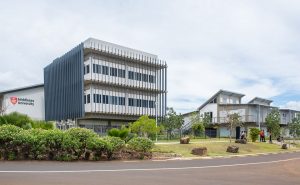Share this article
Be the first to know about our new projects.
2Futures has many new luxury projects in the pipeline. Get notified before the public when there’s a new launch. Benefit from early bird specials.
The UK diaspora in Mauritius has the weightiest influence on the development of the island. And it’s easy to see why. The island nation was under British rule for 158 years before it gained independence in 1968.
Today, the vestiges of the British era remains quite vivid. The form of government in Mauritius—parliamentary democracy—largely bears the influence of the British political tradition.
The administration and official texts of the Mauritian government are in English, as well as in French. The dominantly French-based Mauritian Creole or “Morisien,” on the other hand, is the lingua franca of Mauritius. Its Francophone characteristic came about as France had colonised the island for nearly 90 years prior to British rule.
The curriculum of government schools in Mauritius largely follows the British education system. This British influence is profound, as it extends to the country’s national university—the University of Mauritius. It isn’t only the island’s oldest university but also the largest in Mauritius.
Several British universities have also established branch campuses on the island. Helping spur in recent years, these institutions offer the same quality of education as that in England.

The London-based Middlesex University was the first British university to set up a branch in Mauritius. Its campus in the island is in Vacoas, featuring a custom-built complex which opened in 2010 with its own nature park. In 2017, it opened another campus at the island’s west coast in Cascavelle. The other UK-based universities in Mauritius are Aberystwyth University Mauritius, University of Wolverhampton, and the University of Central Lancashire.
Aside from these academic links, the United Kingdom and Mauritius have mutually beneficial agreements on trade, investment promotion and protection. As a result, Britain counts as one of the leading trade partners of Mauritius. In 2019, Mauritian exports to Britain amounted to USD208.75 million, while the island imported USD169.41 million worth of British goods.
Britain is also one of the largest sources of foreign investments for Mauritius, ranking next only to France amongst EU countries. In 2019, British investors pumped a total MUR1.01 billion into the Mauritian economy, Bank of Mauritius statistics show. This sum represents an increase from MUR955 million in 2018 and MUR675 million in 2017.
British investments in Mauritius cover a wide range of sectors. Amongst these are banking and project management, BPO, and manufacture of garments, tobacco, and petroleum products. Some of the UK companies on the island include Barclays Bank, HSBC, Severn Trent International, Shell, Pricewaterhouse Coopers, and Accenture.
The presence of these large British companies in the island indicates not only the weighty influence of the UK diaspora in Mauritius. All told, it also demonstrates how deft the island’s leadership has been in cultivating relationships with the erstwhile British administrators of Mauritius.